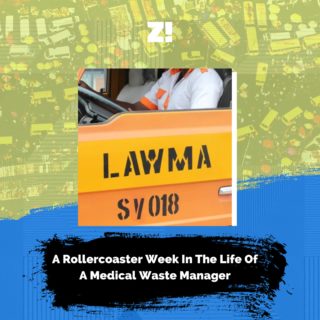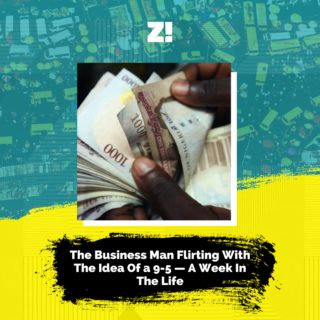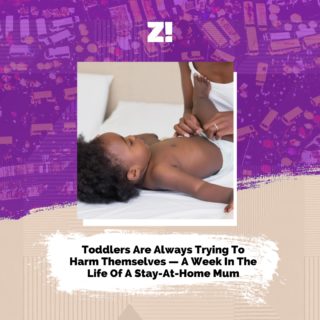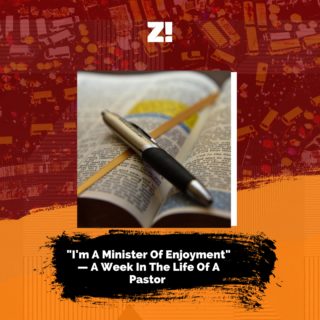What does it mean to be a man? Surely, it’s not one thing. It’s a series of little moments that add up.
“Man Like” is a weekly Zikoko series documenting these moments to see how it adds up. It’s a series for men by men, talking about men’s issues. We try to understand what it means to “be a man” from the perspective of the subject of the week.
The subject of today’s Man Like is a visual artist, writer and occasional spirit husband. He tells us about losing his parents when he was 10, moving a lot because he lived with different families and starting to live when he turned 24.
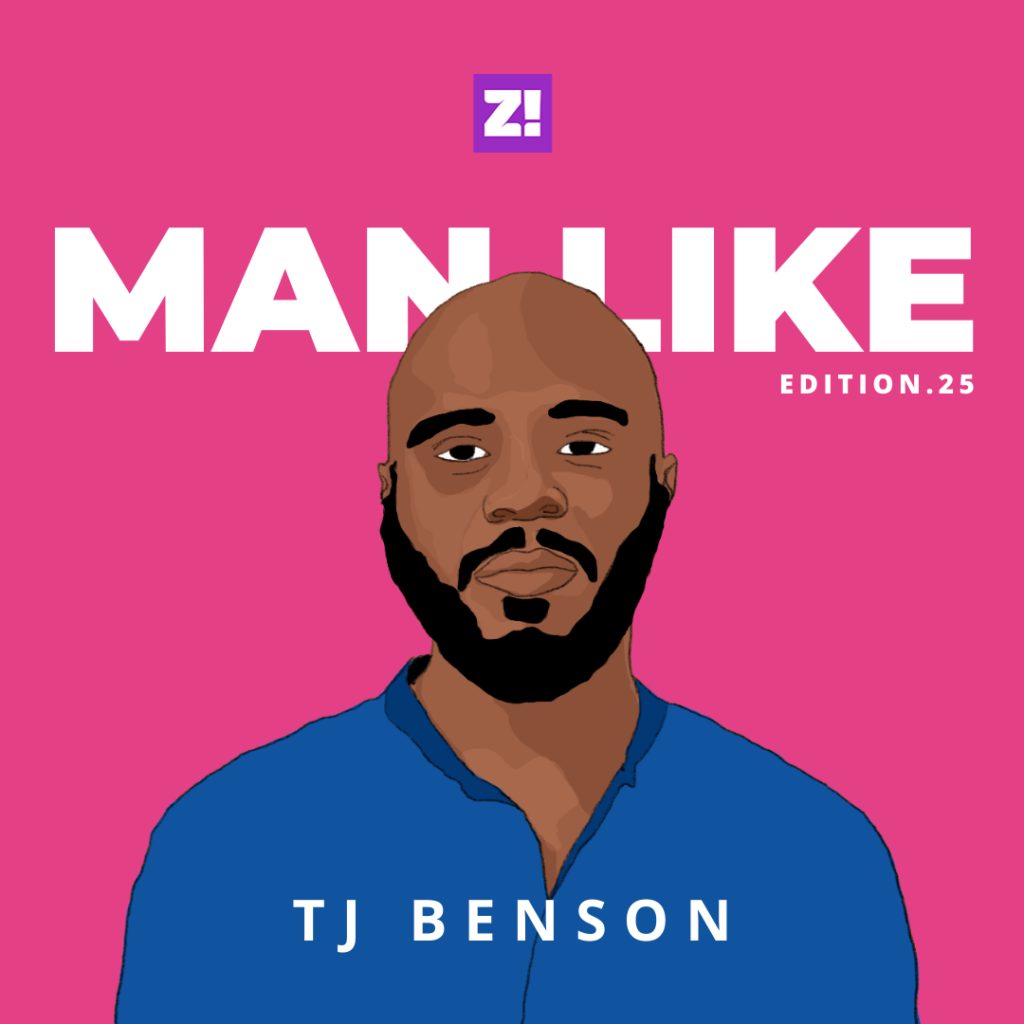
When did you get your “Man Like” moment?
So there are two answers here. If you ask me the first time I started feeling like a man, my closest answer would be final year project defense. I wore some ash wool trousers with a blue striped shirt, second-hand shoes and suspenders. And I followed the combo with a big boy bounce. In my head, I was like, “Wow, yes, I have arrived.”
LMAO.
In a sense, it was the aesthetics of being a man that dawned on me. The first time I felt the expectations of being a man was when my parents died. I had just turned ten, and there were expectations that I was going to continue my father’s lineage. It was weird because I had been insulated from all of these expectations up until then. At the burial, people kept on saying I shouldn’t cry because I was “a man”. In my head, I thought, “Okay this is new.”
Mahn, I’m sorry. How did you cope after their death?
I lived with different families through my teenage years up until my early twenties.
What does moving around do to you as a person?
It makes you not hold on to a defined sense of identity. It also leaves you craving permanence; a desire to stay in one place and hold on to something for a while. You lose a part of yourself each time you move and assimilate to a new family. As an adult, I find that I’m still always travelling. I’m still interested in moving. Even now that I have my own place, there’s a restlessness to move on to the next thing.
Are you an only child?
I have a not so little sister, but we lived separately and only got to spend Christmas together during our teenage years. In my head, I’m an only child because I had to deal with a lot of things alone — it’s only recently I started to rely on people. In fact, I called my sister before this interview.
LOOL. How did constantly moving affect your ability to make friends?
On one hand, I amassed an uncomfortable number of people in my life. Uncomfortable because moving into so many families meant i had no psychological or physical space of my own.
On the other hand, I always had it in the back of my mind that I’d return to the city where I grew up in. However, by the time I went back, all my dear friends had either left the country or had changed.
These days my disposition is to be personable and friendly, but I don’t actively encourage friendships. I remember someone trying to be friends with me, and I was like, “You’re an amazing person and we could both learn a lot from each other, but you came at the wrong time in my life. I have a lot of things to deal with.” Even with my tactic, some people have still managed to find their way into my life.
Awww. What are some important relationships that have added to your life?
I’d say intergenerational friendships. I find that because my friends differ from me in lived experience, age and geography, these friendships pull me out of my reality. I get to witness other possibilities. I’m 29 now, and I’m looking forward to my thirties mostly because I’ve seen how my friends above thirty have embraced life. Watching them just live life gives me a lot of hope. This is a lot of improvement from the teenager who had no plans of seeing past 25.
Interesting. Does anything scare you?
I don’t think I have any fears. I see the possibility of death hanging over anyone I love so I’m always telling myself that loss can happen at any time. I know I love someone when the thought of them dying stresses me out.
Ah. I see.
I really started coming alive as a full person around the time I turned 24, which was around the time I wore suspenders. It was also the year of good music. I started listening to what young people my age were listening to, and I stopped thinking about death.
Before turning 24, I had just been going through the motions. I really feel like I’ve lived a full life and if I die now I’ll be happy.
Wawu. What are some differences before turning 24 and after turning 24?
For one, I feel like I’m the shit.
I’m also learning to occupy space more.
I’m learning to accept help.
To accept compliments.
To rely on people.
I’m learning to allow myself to feel loved.
I love you mahn.
I don’t believe you because you said the same thing to Adekunle Gold.
Scream.
What gives you joy?
Kidney pie — dough with kidney stuffing — gives me joy. Then Citrus! I love using citrus-scented soaps. I also love Electronic dance music: I pray the angels fast forward the footage of me dancing alone in my apartment when they put my life on the projector on judgement day.
Then the colour red makes me happy because God speaks to me in the colour red. I own red candles and my dressing room is painted blood red.
Are you… like a cultist?
Haha.
I want to hear about your models for what it means to be a man.
Because of how I grew up, I had models that were not gender-specific — My parents alternated cooking and other house chores. My dad was more likely to laugh or say sorry to me than my mom in fact. I only started considering him as a model after he died and I started encountering other forms of [toxic] masculinity. These encounters made me start archiving memories of my dad because I was like this is how men are expected to behave in society, but this is how it was in my house. For me, those memories were in a way me clinging to being soft and kind.
Interesting.
In addition to being soft and kind, I also wanted to be as creative as my father.
How so?
My dad had a studio behind the house where he used to make stuff because he was very good with his hands. While I didn’t follow his exact path, I still feel that a lot of my identity has been defined by my creative career. Being able to create is what made me consider life.
A lot of decisions I took in my life, the characters in my stories did them first. The first time I asked someone out was because I had written a character where a 19-year-old — who was my age mate then — had asked someone out, so what was the big deal? In real life, it ended up becoming a two-hour conversation and some long ass walk.
Damn.
Tying your identity to a career is not healthy because I remember this one time where I was in a bad space because my career wasn’t where I wanted it to be. I had to constantly affirm myself outside of my career. It was a constant struggle to remind myself that I didn’t need to be a great author to be worthy of being alive.
Heavy stuff.
How do you define your masculinity?
I only define it in the parts that interest me. And that’s in the aesthetics/fashion. But there’s also socialisation and how masculinity relates to me in terms of bias. Even though I don’t feel “masculine”, I still find myself unlearning little biases I didn’t know I had in me.
I thought I was “woke”, but I have realised no matter how feminist you are in your relationship with a woman, the world is still waiting with its nonsense outside. I was in a friend’s car once and when road safety stopped us, the officer came to “bargain” with me and not my friend in the driver seat who owned the car — because she was well, a woman. I almost responded to him but I had a ‘wait a minute’ moment in my brain.
There was a funnier incident years ago when someone had asked me out, and I accepted and was happily enjoying the relationship. One day I got a text: When are you going to ask me to be your girlfriend officially? I was like, wait, is it joke we have been joking since? I’m learning that at the end of the day, we all have inherent gender biases to work through.
Preach. Has anything ever threatened your idea of masculinity?
I think there’s generally a sense of compulsory masculinity that piles certain expectations on you. I internalised some of those ridiculous expectations when I was younger.
For example, I hated jewellery growing up. When I started interrogating my hate, I realised it was simply because society decided men wearing jewellery was effeminate and anything that leans towards the feminine must be punished. I read that before colonisation came, my father’s people (Tiv) actually mocked teenage boys who turned fifteen without wearing gold earrings.
Oh wow.
I don’t think masculinity is bad. It can be colourful too. I’ve lived in parts of Nigeria where men dye their beard orange or wear eyeliner. I’m also interested in the idea of collaboration between men. There’s a strong chance for men to have real conversations and unlearn toxic masculinity. If men on Twitter could come together and build a stingy men association website, then they could intervene in the case of boys who go through sexual abuse.
Overall, I’m just interested in being soft last last. I don’t have strength for the performance society wants from me. It’s too limiting. The world is vast and full of wonders.
Check back every Sunday by 12 pm for new stories in the “Man Like” series. If you’d like to be featured or you know anyone that would be perfect for this, kindly send an email.
COMPONENT NOT FOUND: donation
